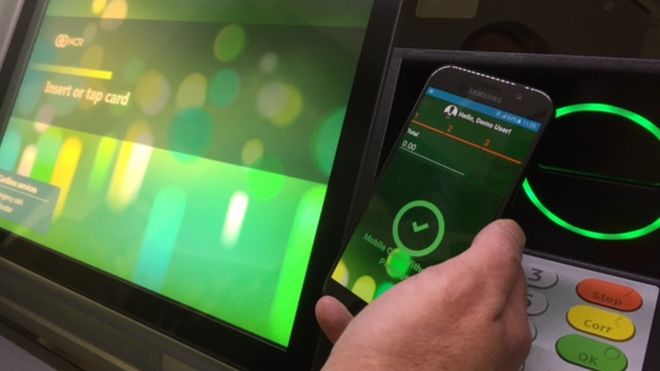Can a “Bank in a box” replace a branch?
May 2, 2017 | Expert Insights

Cash and any transaction have had a very steady history. For many years, the introduction of bank notes followed by the introduction of cheques allowed consumers to make their transaction and a transfer of value. However, with the introduction of digital solutions and online transactions, the significance of physical cash seems to be dwindling. This rise in digital transactions does not necessarily come at the decease of cash, but probably the role of cash would have to be redefined. There has always been a need to way to transfer value from one to another, but in this digital age, there are a range of options varying from internet banking to payment apps like Paytm.
Possible Benefits
Post Demonetization, the Centre is making a big push for online and card transactions in the country with the target of becoming largely cashless. A recent study showed that, as generation grow up with technology there would be a tendency for them to view their currency as data and would consider undertaking all their banking via mobiles rather than physically visiting ATMs. With digitizing, there is not only a reduction in cost but it also helps increase efficiency and transparency which would help build infrastructure and broaden familiarity with digital payment. Recipients could conveniently transfer funds and could store value in either traditional accounts or in e-wallets. Another significant advantage would be that through a cashless society, it would be curb the amount of black money circulated in the economy which often leads to damaging economies.
The Beginning of the End of Cash
Digital banking has progressed at different paces in different countries. UK, Australia and South Korea would be considered as the more advanced. Malaysia, over the next few years, is expected to see advances with the strong usage of smartphone, tablets and the internet which would allow the banks to offer more services online. This rise in digital banking would not necessarily mean an end of branch banking in Malaysia as some people would still prefer face-to-face banking experiences, particularly when it comes down to huge investments decisions. It should also be taken into consideration that many Malaysian banks have heavily invested in technology. The reason behind the investment would vary for different banks while some choose to acquire new customer’s others cater to reducing cost.
Assessment
Despites the benefits offered by these digital transactions, the biggest risk involved is with the demise of physical cash, there could be a considerable rise in e-crime and the increase in use of digital currency could lead to the speed and scale of cybercrime. The biggest pitfall of the internet banking schemes, is that even though the software’s are designed to protect accounts there is always a scope of hacking by smart elements in the cyber world.
When it comes to complex and international transaction, a face-to-face interaction would always be advisable. Making them online might lead to a link failure which could hamper the mode of transfer and end up making situations far more complicated. Many digital payments face infrastructure challenges. In many rural areas, the limitation in mobile network coverage, poor roads and transportation networks would be hindrances to the expansion of electronic financial services.
The banking sector has become more competitive over the years due to digitizing of banks. The best approach would be to break up the banking needs between the online and the in-store services to enjoy benefits of both.








Comments